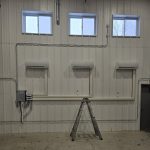Finding it tough to keep your home feeling comfortable year-round? You’re not alone. Many homeowners deal with inconsistent temperatures or aging HVAC systems that just aren’t keeping up.
Whether it’s time for a furnace repair, or you’re exploring new options like heat pumps or hydronic heating, navigating the possibilities can feel overwhelming.
This HVAC guide explains effective home comfort solutions, such as energy-efficient upgrades, enhancements to indoor air quality, and smart system planning. With this information, you can create a home that is comfortable, efficient, and prepared for the future.
Heating & Cooling Systems for Home Comfort

Heating and cooling systems are super important for keeping your home comfy all year round. In this part, we’ll take a look at some common systems used for temperature control.
Heat Pump Solutions for Ontario Homes
More and more Ontario homeowners are turning to heat pumps for efficient, low-emission heating and cooling. But choosing the right system and understanding how it works requires more than browsing a product list. At Bryan’s Fuel, we’re recognized as a Certified Heat Pump Advocate and Heat Pump Champion through HRAI, which means you’re getting advice and service that meets the highest standards in the industry.
How Do Heat Pumps Work?
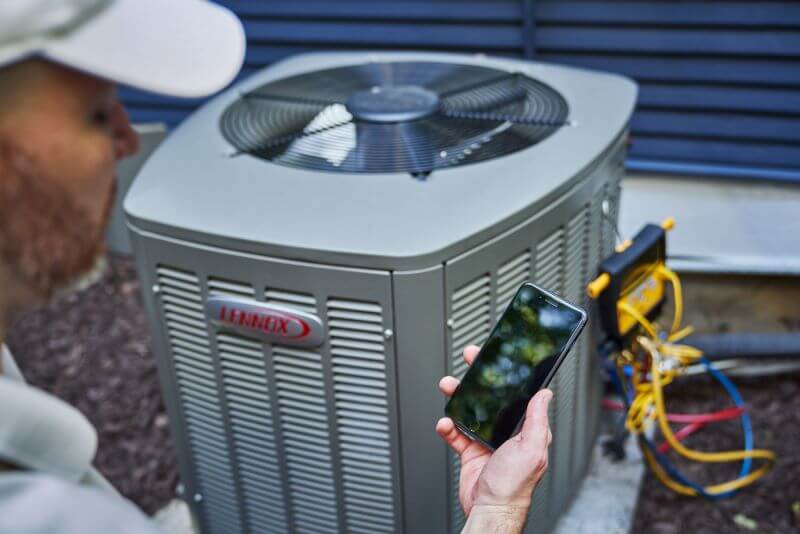
Heat pumps don’t burn fuel to generate warmth. Instead, they move heat, drawing warmth from the outside air and bringing it inside in winter, then reversing the process to cool your home in summer. This makes them incredibly energy-efficient, often delivering 3–4 times more heat per unit of electricity compared to traditional electric resistance heating.
Want to understand why your home may still feel cooler with a heat pump, or why your furnace still kicks in sometimes? Read our full post: Top Heat Pump FAQs Answered for Ontario Homeowners.
Custom Heat Pump Solutions
A heat pump doesn’t need to replace your current system entirely, it can complement it. Whether you’re working with an existing HVAC setup or building a new home, we help you customize the right combination:
- Heat pump + propane natural gas, or oil furnace (dual fuel)
- Heat pump + air handler and hydronic coil
- Zoned ductless heat pumps for additions or renovations
Many homeowners still think they need a traditional furnace and A/C combo, but in reality, there are more flexible and efficient options available than ever before. We’ll help you explore what’s possible, not just what’s familiar. We’ll never push you toward a system that isn’t a good fit.
While heat pumps offer an all-electric, highly efficient solution, some homeowners, especially those building new homes, may explore radiant alternatives like hydronic heating.
Dual Fuel Heating Systems
Dual fuel systems combine a heat pump with a backup heat source like a furnace powered by propane, natural gas, or oil. These setups automatically switch based on ability to satisfy temperature, helping you stay comfortable and efficient year-round. Many homeowners assume their only option is a furnace and A/C, but today’s systems can be fully customized to suit your home, climate, and comfort preferences.
Pair a Heat Pump with a Propane Furnace
Combining a heat pump with a propane furnace can enhance energy efficiency. This setup allows for optimal heating during colder months while reducing reliance on fossil fuels.
Combine a Furnace with In-Floor Hydronic Heating
Integrating a furnace with in-floor hydronic heating provides consistent warmth throughout your home. This method ensures even heat distribution, creating a comfortable living environment.
Use Ductless Heat Pumps for Select Areas
Ductless heat pumps are ideal for targeting specific areas in your home. This system allows for customized temperature control, improving comfort and energy savings.
Retrofit Newer Systems into Older Homes
Retrofitting newer heating systems into older homes can significantly improve efficiency. Alternatively, starting fresh with a tailored plan in new construction ensures optimal performance from the outset.
At Bryan’s Fuel, we don’t just try to sell you equipment, we help you design the system that will work best for your home, your goals, and your budget.
Hydronic Radiant Heating for New Builds
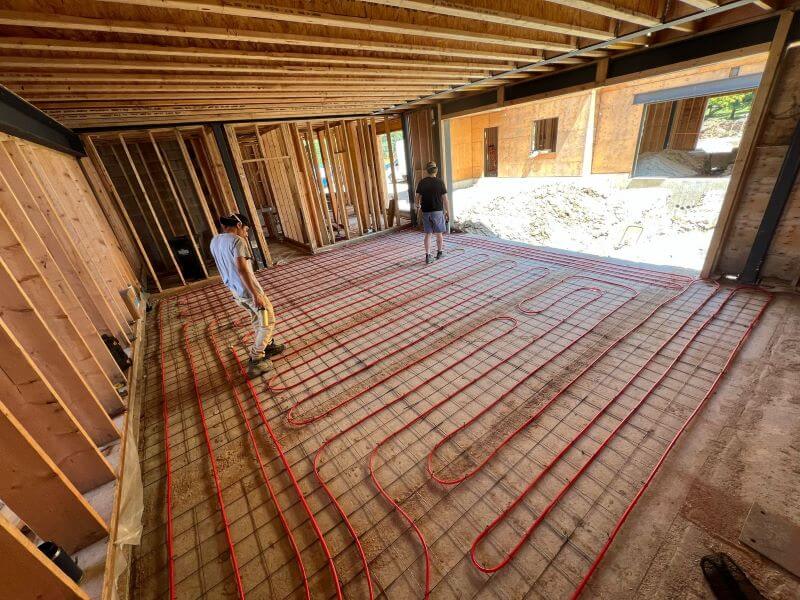
Hydronic heating systems use water to transfer heat throughout your home, typically through piping embedded in the floors. This method delivers even, radiant warmth that rises from the ground up, creating a comfortable indoor climate without relying on forced-air circulation.
Rather than being an upgrade for existing homes, hydronic heating is best considered during the planning phase of a custom or new home build. The system requires infrastructure that’s integrated into the flooring, making it far more cost-effective and practical when installed during initial construction. It’s a customized solution that works particularly well for homeowners who want a quiet, efficient, and uniform heating experience from the floor up.
While some people point to reduced noise as a benefit, that alone isn’t a primary reason to choose hydronic heating. The real value lies in its consistent heat distribution and ability to maintain comfort with lower energy use, when properly designed into the home from the start.
Of course, many homes still rely on traditional furnaces, so knowing how to spot and solve common furnace issues is essential for year-round comfort.
Furnaces: Repair & Troubleshooting
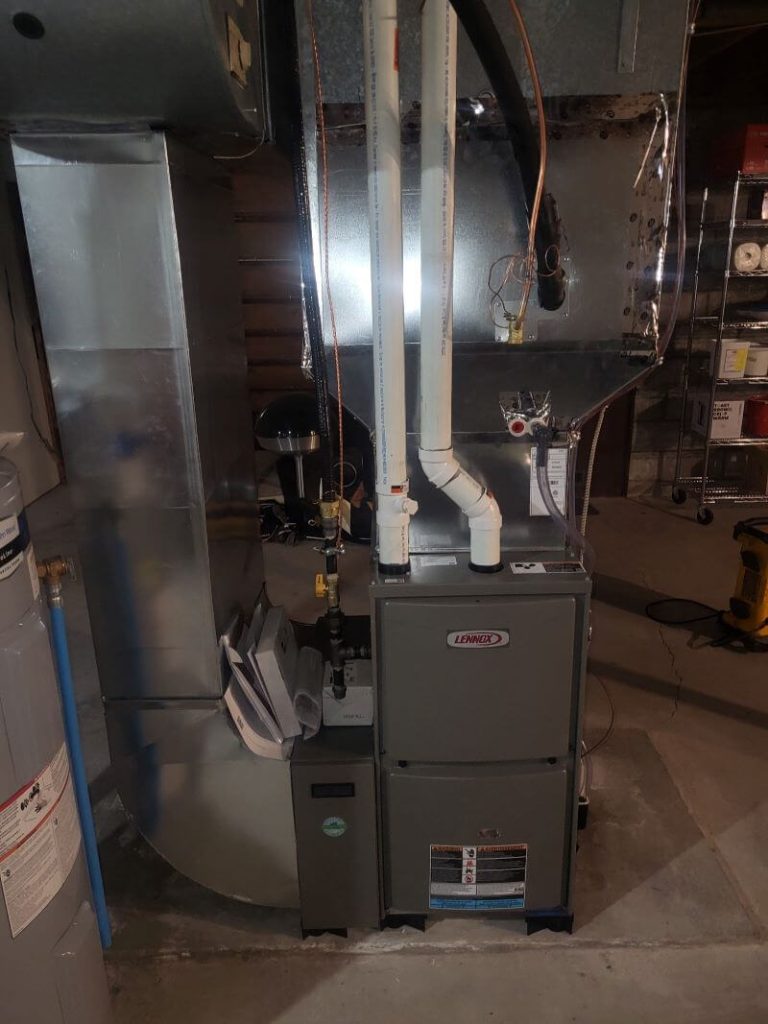
Furnaces remain one of the most common heating systems in Ontario homes, offering fast, powerful heat through forced air. Whether natural gas, propane, oil or electric, a well-maintained furnace can last 15–20 years or more and provide reliable comfort throughout the coldest months.
If your furnace stops working or isn’t heating properly, start by checking the basics like the thermostat, power supply, and air filter. Issues with airflow, ductwork, or pilot lights are also common culprits. Catching small problems early can help you avoid larger repairs or emergency service calls.
If these steps don’t resolve the issue, it’s time to call a professional. We offer 24/7 emergency HVAC service to get your system running again safely and quickly.
Want to avoid these situations altogether? Explore our maintenance and service plans. They include scheduled inspections, filter replacements, priority service, and more so you’re never left in the cold.
One of the most overlooked causes of furnace inefficiency is an improperly sized or poorly maintained filter.
Choosing the Right Furnace Filter Size
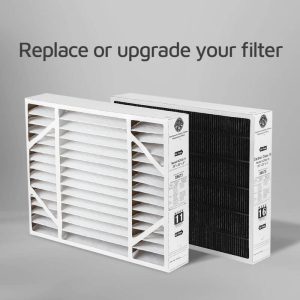
Choosing the right furnace filter size is key to keeping airflow efficient and your system performing at its best. While your filter size is based on your cabinet, it can be upgraded, though it may require changes to your ductwork or cabinet. If you’re changing filters too often or noticing airflow issues, it might be time to explore better options.
Water Heater Decisions
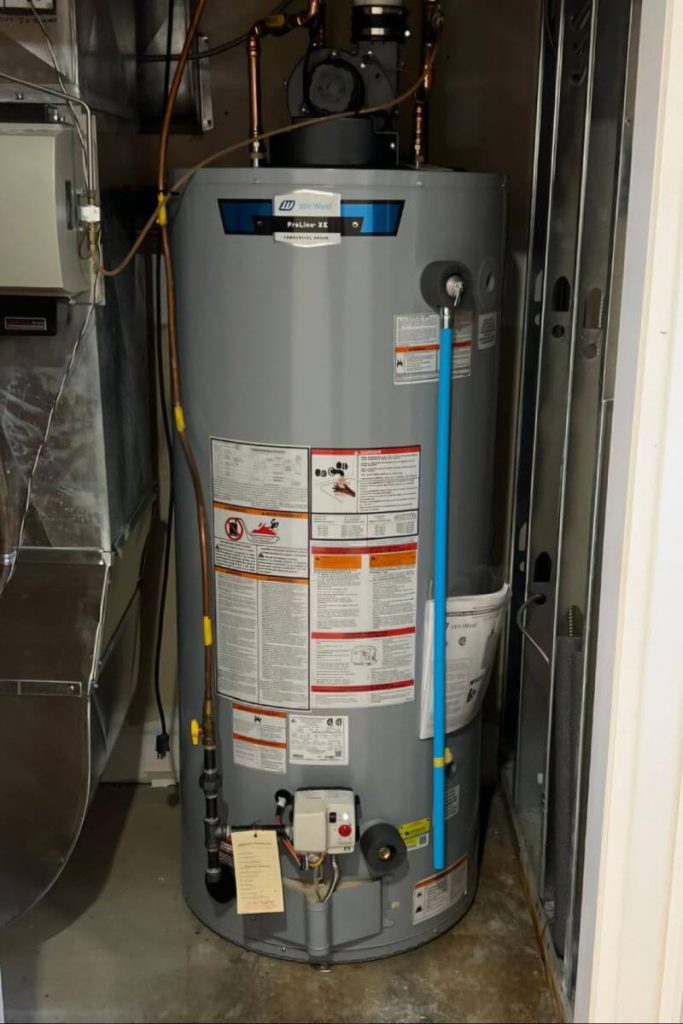
Choosing the right water heater is another important aspect of home comfort solutions. Consider factors such as energy efficiency, capacity, and fuel type when selecting a water heater.
Types of Water Heaters
- Tank Water Heaters: These are the most common type, storing a large volume of hot water for immediate use. They are generally less expensive upfront but can be less energy-efficient due to standby heat loss.
- Tankless Water Heaters: Also known as on-demand water heaters, these units heat water directly without the use of a storage tank. They are more energy-efficient and can provide a continuous supply of hot water, making them ideal for larger households.
- Heat Pump Water Heaters: These units use electricity to move heat from the air or ground to heat water, making them highly energy-efficient. They work best in moderate climates and can significantly reduce energy costs.
Provincial authorities oversee the regulation of high energy use appliances, and we are experts in navigating these details. Our team can guide you through the complexities of your options, ensuring you make an informed decision. To further assist you, check out our blog on whether you should rent or buy your water heater.
Water Heater Installation & Maintenance
Proper installation maximizes the efficiency and lifespan of your water heater. For this reason, it’s best to work with HVAC professionals with a history of great service. Ideally, they will also offer regular maintenance, such as flushing the tank to remove sediment buildup and checking the anode rod.
Ventilation & Indoor Air Quality
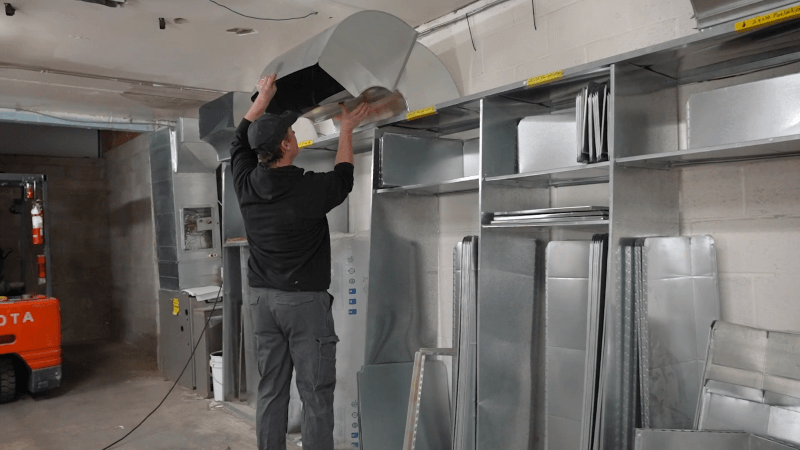
When most people think about HVAC, they focus on heating and cooling—but ventilation and indoor air quality are just as important for your home’s overall comfort and health. The air you breathe indoors can affect everything from seasonal allergies to respiratory health, especially in homes that are tightly sealed or lack adequate airflow.
That’s why more homeowners are turning to whole-home air purifiers and humidifiers to complement their HVAC systems. These devices go beyond just temperature control. They actively filter airborne particles, balance humidity, and circulate fresh air throughout your living space, helping to reduce allergens, bacteria, dust, and even viruses.
How HVAC Systems Regulate Indoor Air Quality
HVAC stands for Heating, Ventilation, and Air Conditioning. These systems work together to regulate indoor temperature and air quality. A well-functioning HVAC system ensures comfort throughout the year, but it’s not just about staying warm or cool, it’s about creating a clean, breathable indoor environment.
- Heating systems, like furnaces and heat pumps, keep your home warm in the winter.
- Ventilation systems circulate fresh air, remove indoor pollutants, and maintain proper humidity levels.
- Air conditioners and heat pumps cool your home in warmer months and help control moisture.
Improving Indoor Air Quality at Home
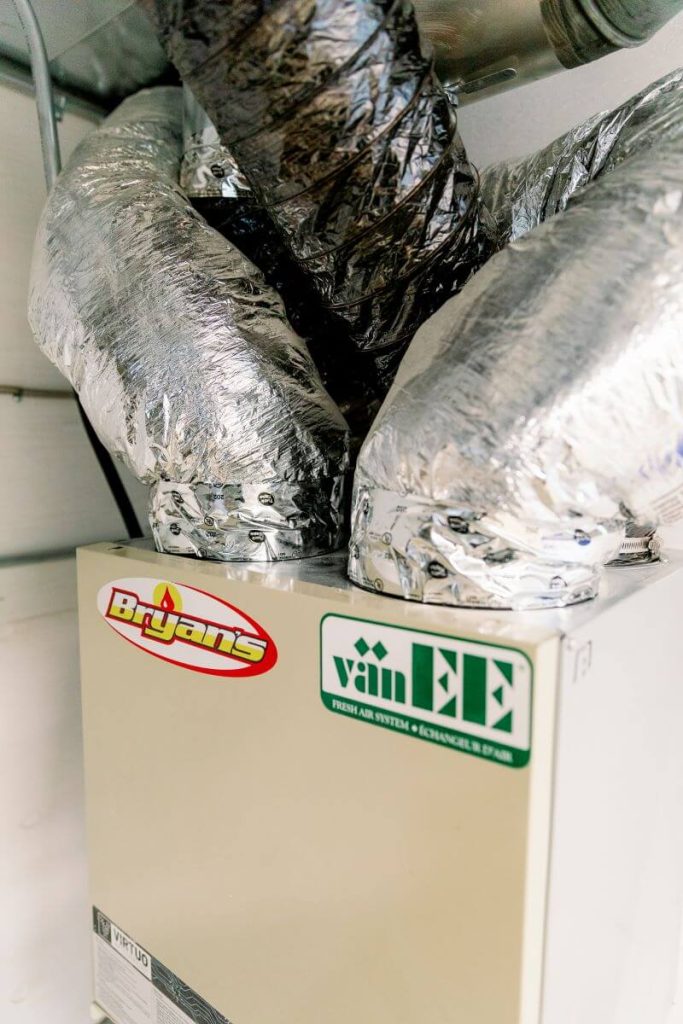
From allergens to moisture levels, poor indoor air quality can affect your comfort, health, and even your home’s efficiency. To improve air quality across your home, consider:
- Whole-home air purifiers: Installed in your ductwork, these systems capture dust, allergens, and even bacteria or viruses—ideal for allergy-prone households or pet owners.
- Humidifiers and dehumidifiers: Balanced humidity prevents mold, dryness, and static while protecting wood surfaces and improving respiratory comfort.
- Upgraded filters: High-MERV or HEPA-grade filters offer superior filtration but must match your HVAC system’s capacity.
- Mechanical ventilation: Systems like HRVs or ERVs continuously replace stale indoor air with fresh, filtered air from outside.
With the right combination of filtration, ventilation, and humidity control, you can make your indoor air cleaner, healthier, and easier to live in.
Now let’s look at one of the most important, yet often overlooked parts of maintaining indoor air quality: your ductwork.
Duct Cleaning After Renovations or Allergens Build-up
Duct cleaning plays a role in maintaining a healthy and efficient indoor environment, but it’s not something every home needs on a routine basis. The key is knowing when it actually makes sense to do it.
We recommend duct cleaning immediately after any major renovation or construction project. Dust, drywall particles, and debris often settle inside the ductwork and can circulate through your HVAC system if not properly cleared out.
Outside of construction-related scenarios, duct cleaning may also be worth considering every five years if you have specific circumstances, such as:
- Multiple pets that shed
- Family members with allergies or respiratory conditions
- Living in a dusty or high-pollen environment
Even then, this should be done only as needed and always by a reputable, professional duct cleaning company. If you’re not sure who to trust, we’re happy to recommend someone with the proper equipment and a strong track record.
Most importantly, avoid falling into common duct cleaning scams. Before hiring anyone, ask:
- What tools will you be using?
- What does your cleaning process involve?
- Can you show me before and after images or inspection footage?
A good provider will be transparent and happy to walk you through their process. With the right information and the right people, you can make smart choices that actually improve your home’s air quality and system performance.
Of course, cleaning is only part of the equation—how your ducts are installed and designed can be just as important for long-term efficiency and comfort.
Ductwork Installation Tips for Better Airflow
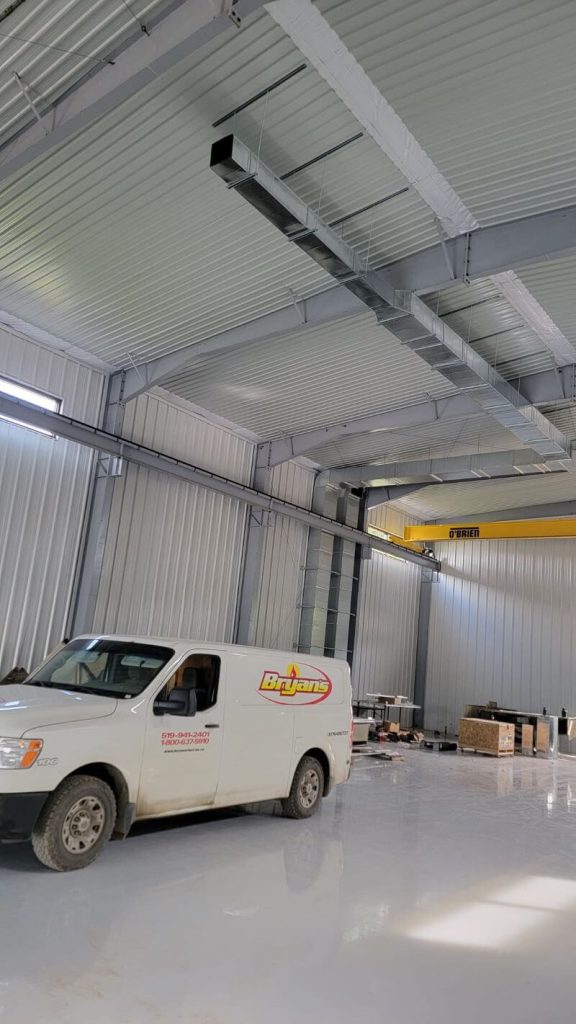
Ductwork plays a major role in the efficiency and comfort of your HVAC system, but it’s not something most homeowners think about unless they’re building a new home or adding onto an existing one.
In these cases, proper duct design is essential. A poorly designed system can lead to uneven heating and cooling, reduced efficiency, and long-term wear on your equipment. That’s why it’s important to work with a qualified professional. In Ontario, duct design for new builds or additions typically requires someone with BCIN certification to ensure compliance with building code and system performance standards.
At Bryan’s Fuel, our Home Comfort Specialists are HRAI-certified, bringing the expertise needed to design systems that suit your home’s unique layout and needs. For installation, our work is completed by journeymen residential sheet metal mechanics, registered with the Ontario College of Trades, ensuring a high standard of craftsmanship.
We also custom-build all our ductwork in-house at our sheet metal shop. This means your ducts are made to fit, not forced to. Custom fabrication allows for better airflow, improved efficiency, and fewer long-term issues like air leaks or pressure imbalances.
HVAC Maintenance & Emergency Services
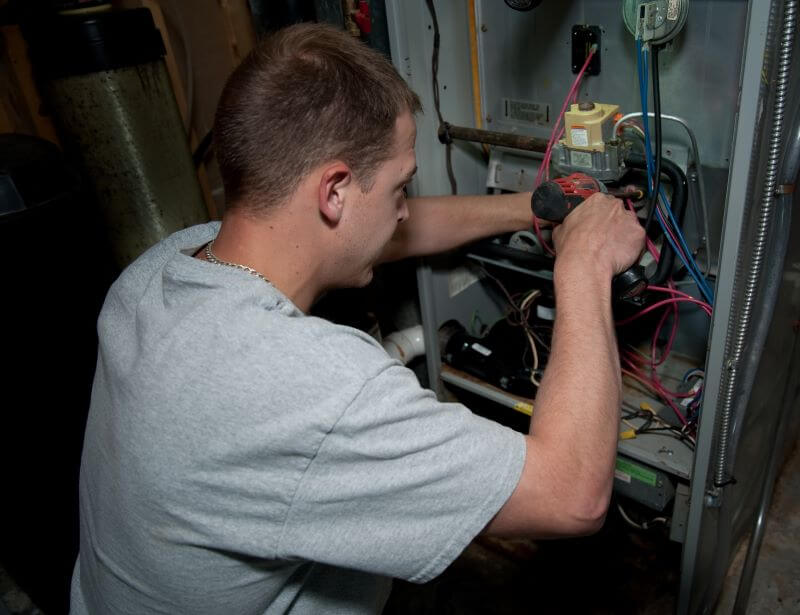
HVAC maintenance and emergency services are essential for ensuring the comfort and safety of any indoor environment. Regular maintenance helps to prolong the life of heating, ventilation, and air conditioning systems, improving efficiency and reducing energy costs.
Preventative HVAC Maintenance Tip
Regular HVAC maintenance is vital for ensuring the longevity and efficiency of your heating and cooling systems. Schedule annual inspections with a qualified technician to check for potential issues, clean components, and replace filters. This proactive care helps prevent costly repairs and keeps your manufacturer’s warranty intact.
What to Do During an HVAC Emergency
In the event of an HVAC emergency, such as a complete system failure during extreme weather, it’s crucial to have a plan in place. Disruption of your home comfort solutions during the cold months can mean more than just having to put on a sweater and bundle up. It can mean damage to pipes or temperatures low enough that it’s no longer safe for your family to stay in the house. Knowing who to call for emergency repairs can save you time and stress. Regular maintenance can also help prevent emergencies by identifying potential issues before they escalate. Bryan’s Fuel offers emergency HVAC service, so if you don’t already have a plan in place, we’re here to help you through those unexpected situations.
When to Replace Your HVAC System

It’s time to consider replacing your HVAC system when the cost of repairs, especially in relation to the system’s overall condition, no longer makes sense. If your system is running reliably and efficiently, there’s no need to replace it.
However, if it’s struggling to perform and requires significant repairs, a replacement may be the more cost-effective option in the long run. Balancing repair expenses, energy efficiency, and overall system performance can help you make the best decision for your home and budget.
When replacing your system, proper sizing is key. A unit that’s too small will run constantly, while one that’s too large can short-cycle—reducing efficiency and shortening its lifespan. A professional load calculation considers your home’s size, layout, and insulation levels to ensure a perfect fit.
Energy Efficiency Upgrades
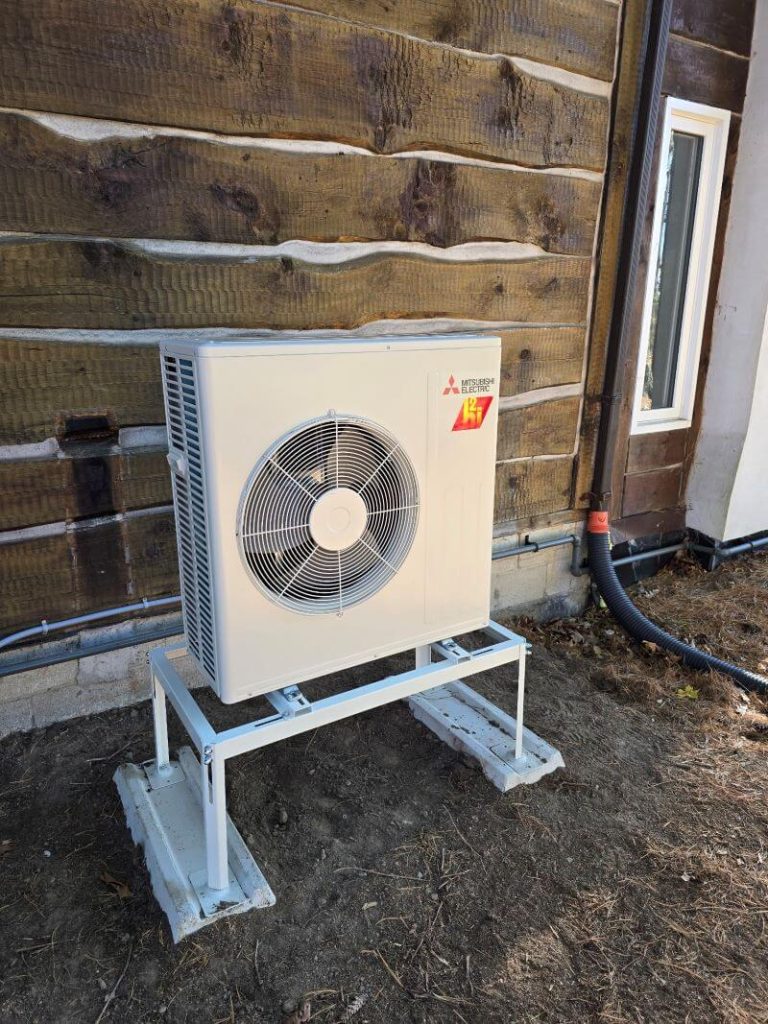
Energy efficiency upgrades are a smart long-term investment, but not every change pays off right away. For example, replacing a six-year-old furnace with one that’s only slightly more efficient likely won’t show up on your energy bill. Even with multiple upgrades like improved insulation or duct sealing, it may take years to see a full return.
That’s why it’s important to focus on what truly drives efficiency:
- SEER (Seasonal Energy Efficiency Ratio) rates cooling systems; higher SEER = better efficiency.
- AFUE (Annual Fuel Utilization Efficiency) measures how well your furnace converts fuel into usable heat.
Other impactful upgrades include:
- Sealing drafts around windows and doors
- Installing smart thermostats
- Adding insulation in attics and basements
- Choosing ENERGY STAR rated appliances
- Running ceiling fans to reduce HVAC load
- Getting a professional energy audit to spot hidden inefficiencies
Something else to consider is if you are still heating your home with oil. There’s never been a better—and more important—time to make the switch to a different heating source. More on this below.
HVAC Costs, Rebates & Financing
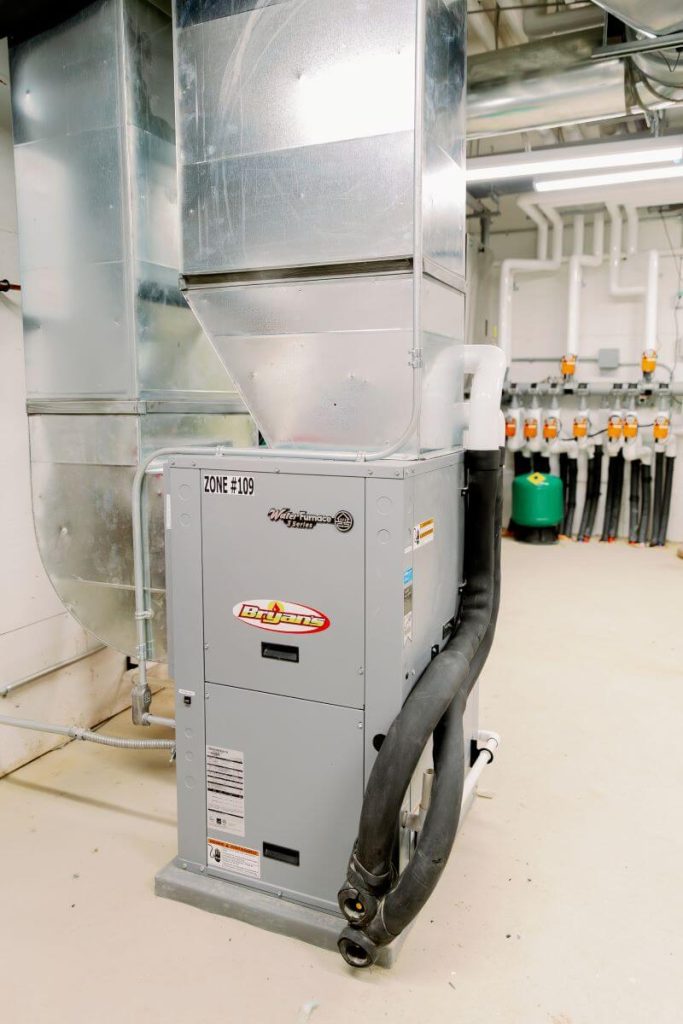
Investing in a new HVAC system is a big decision, but there are smart ways to reduce the cost.
Several factors influence the final price tag:
- System type (e.g., central air, heat pump, ductless)
- System size and capacity
- Installation complexity, including ductwork or electrical upgrades
- Seasonal demand—installing in off-peak times may save money
In today’s economic climate, flexible financing options can make a big difference. Instead of paying the full cost upfront, financing allows you to spread payments out over time, making your home more comfortable without putting as big of a strain on your budget.
Bryan’s Fuel offers flexible financing plans for qualifying HVAC upgrades, along with access to valuable savings programs, including:
- Oil to Heat Pump Affordability Program (OHAP)
- Home Renovations Savings Program
- Manufacturer’s Rebates
- Bryan’s Fuel Customer Referral Program
With the right strategy, you can upgrade to a high-efficiency system that fits your budget and delivers savings over time.
Oil to Heat Pump: Why Now Is the Time to Switch
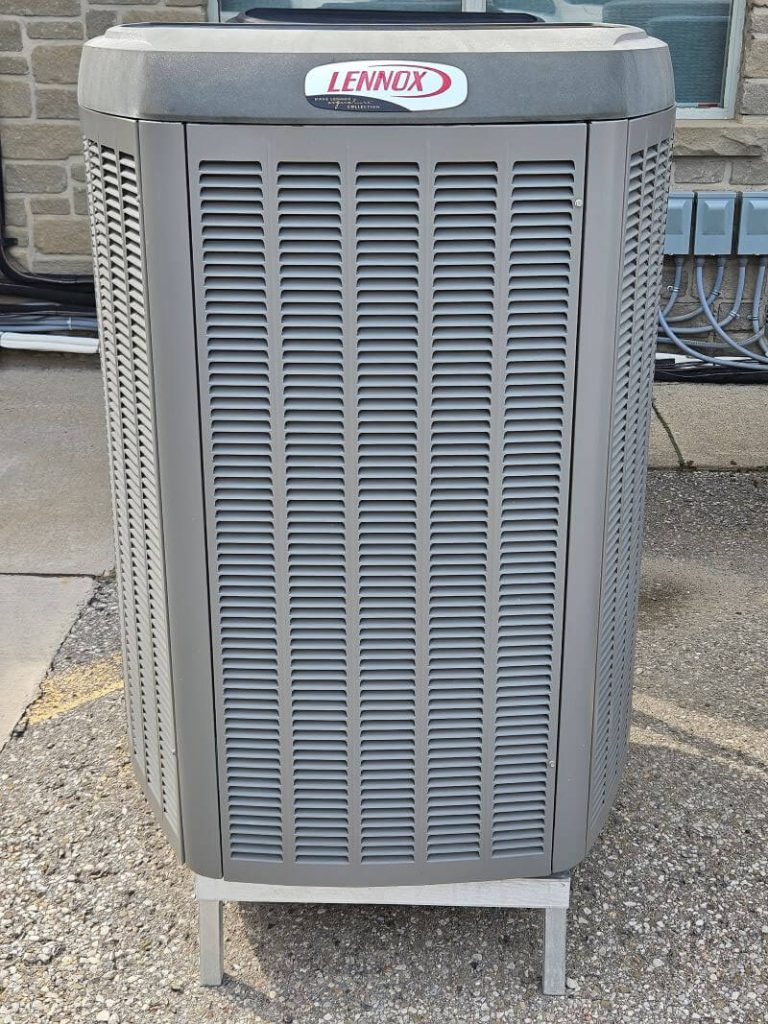
If your home is still heated with oil, now is the time to plan for a change.
While oil systems may still be working for some households, the industry is quickly phasing out, and that presents some real risks if you wait too long to make the switch.
- No new technicians are being trained to service oil HVAC systems
- Major brands like Lennox and Carrier have stopped making oil furnaces
- Top water heater manufacturers no longer offer oil-fired models
- Parts are becoming scarce, harder to source, and more expensive
This means that if your oil system breaks down, you may not be able to find someone to repair it, or the parts to fix it. Upgrading now gives you more control, more choices, and access to major rebates and incentives.
Plus, switching to a cold-climate heat pump will help lower your energy bills, reduce emissions, and future-proof your home’s heating. Bryan’s Fuel provides valuable guidance and assistance throughout the entire process.
For many rural homeowners where natural gas isn’t available, propane remains a reliable, versatile fuel, both as a primary energy source and as part of a hybrid heating setup.
Propane & Fuel
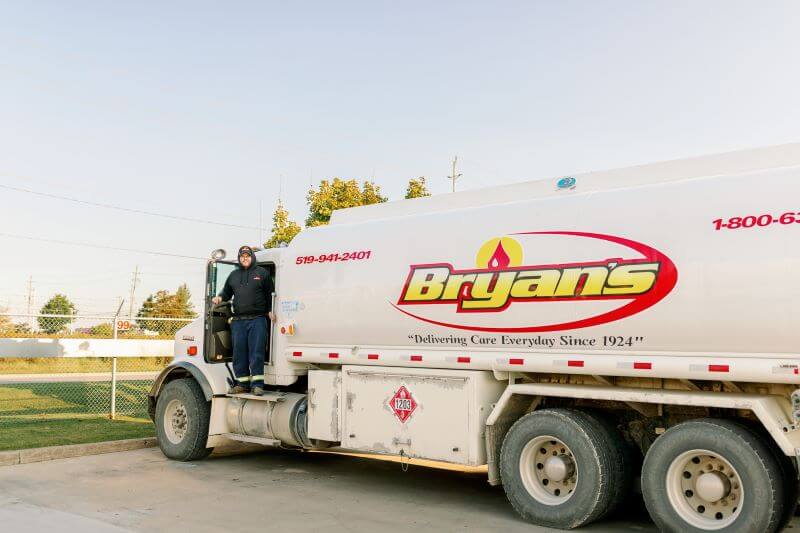
If you’re heating your home with propane, chances are you live in a rural area. That’s because natural gas lines don’t reach most rural Ontario communities, and propane steps in as the reliable, go-to option for energy. It powers furnaces, water heaters, stoves, dryers, fireplaces, generators—and keeps things running smoothly year-round,
But propane isn’t just for homes. It plays a huge role in powering businesses across rural Ontario, too.
Why Propane Works So Well in Rural Homes
One of the biggest advantages of propane is its availability and versatility. It doesn’t rely on a utility line, it’s stored on your property and delivered when you need it. That independence makes it perfect for rural homes where energy options are limited. Whether you’re heating a farmhouse, running a pool heater at the cottage, or cooking dinner on a propane range, it delivers comfort and control with fewer moving parts. And with today’s high-efficiency propane appliances, you’re getting more heat for your dollar than ever before.
Propane for Business
In rural communities, propane is also the engine behind a wide range of industries, quietly working behind the scenes to keep operations moving:
- Farm operations rely on it for greenhouse heating, grain drying, space heating in barns, and more.
- Landscaping companies use it to power equipment and keep vehicle fleets moving.
- Construction sites often need propane for temporary heatingHospitality businesses, like rural inns or event spaces, use it for commercial kitchens, outdoor heating, and backup power.
It’s not just about heat—it’s about reliability, availability, and simplicity. That’s why so many business owners don’t switch suppliers often, it just needs to work. And that’s exactly what we’re here to help with. See how Bryan’s Fuel is supporting their propane customers.
Liquid Fuels for Rural and Commercial Operations
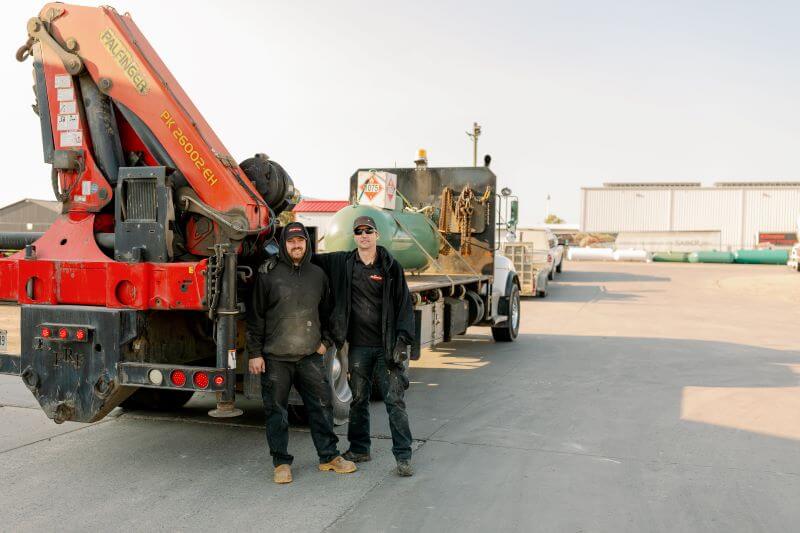
In rural and commercial settings, gasoline and diesel remain essential for day-to-day operations, powering everything from tractors and skid steers and service fleets. Many industries rely on dependable fuel access to keep their equipment running efficiently, especially in areas where on-site refueling is more practical than constant trips to town.
Bryan’s Fuel provides liquid fuel delivery that plays a key role in:
- Fleet management for businesses with multiple service or delivery vehicles
- Farming operations that use fuel for tractors, harvesters, and irrigation equipment
- Construction and landscaping companies with equipment that moves from site to site
Reliable delivery and smart scheduling can help reduce downtime, improve productivity, and simplify operations for businesses working in remote or rural areas.
What to Look for in a Fuel Partner
If you’re running a rural home or business on propane or liquid fuels, here are a few questions worth asking:
- Is your fuel supplier helping you anticipate seasonal usage changes?
- Do they offer flexible delivery options and tank monitoring?
- Can they accommodate both residential and commercial needs under one account?
- Do they understand your industry’s specific fuel use patterns and scheduling challenges?
There’s no shortage of companies that can deliver propane or diesel. But the real value is in having someone who gets what you need without you having to ask.
At Bryan’s Fuel, we’ve been supporting rural homes and businesses in Ontario for decades. We don’t believe in pushy sales or generic service. We believe in honest advice, flexible programs, and making energy decisions easier for people who already have enough on their plate.
If you’re heating a home, powering a fleet, running a farm, or just looking for better service from your fuel supplier—we’d love to be the ones who show up when you need us.
No matter which systems or fuel types you choose, it helps to have a trusted local partner who can guide you every step of the way.
Your Source for Home Comfort Solutions
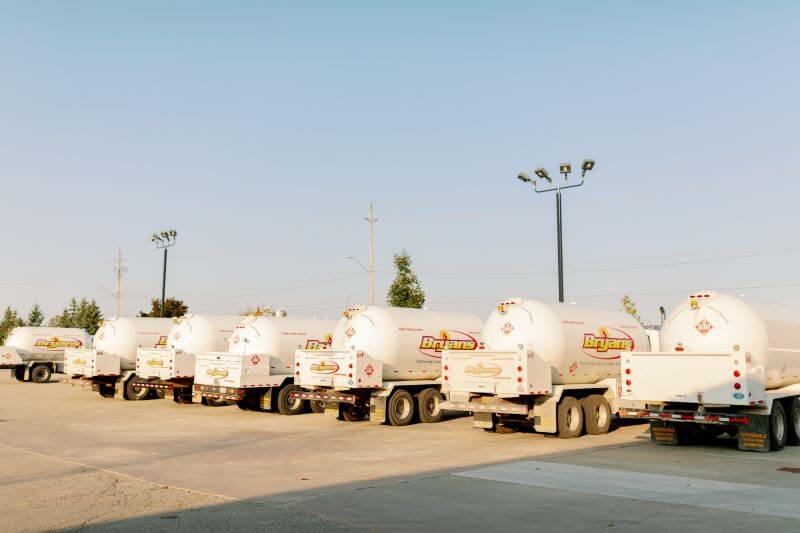
At Bryan’s Fuel, our commitment is to offer you quality home comfort solutions customized to your requirements. Whether you’re thinking about switching to heat pumps, upgrading your HVAC system, or choosing the best water heater, our team of experts is ready to support you at every stage.
We offer comprehensive assessments to determine the most efficient systems for your home, ensuring you achieve optimal comfort while minimizing energy costs. Our professional installation services guarantee that your systems operate at peak efficiency, and our maintenance plans help prevent unexpected breakdowns.
Contact us today to learn more about our services and how we can help you achieve a more comfortable and energy-efficient home.



